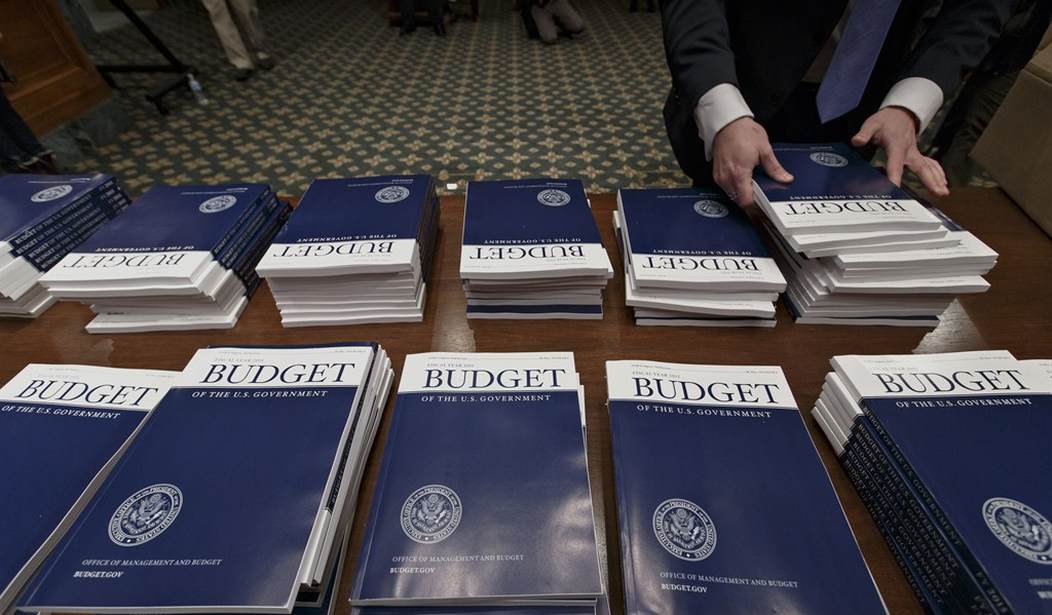A report out last week from the center-left Brookings Institution highlights that, although a little bit of progress has been made on budget deficits in recent years, a massive challenge remains - one that President Obama is intent on ignoring with his "anti-austerity" budget requests.
"Forgotten But Not Gone" is the report out from Alan Auerbach and William Gale, two fellows at the Brookings Institution. They write:
Several recent changes have helped improve the nation’s medium-term and long-term budget picture. But the country started with a substantial fiscal gap, and so while the recent improvements have helped shave part of the problem away, there is still a long way to go. Moreover, even as current-period deficits fall to more typical historical levels from the enormous levels that persisted in 2009-11, the nation now must carry a debt load that is twice as large as its historical average and that makes budget outcomes much more sensitive to interest rates.
Under even the most optimistic scenario, the necessary adjustments will be large relative to those adopted under the recent legislation. Moreover, the most optimistic long-run projections already incorporate the effects of success at “bending the curve” of health care cost growth, so further measures will clearly be needed. Also, the changes needed relate much more to medium- and long-term deficits, not short-term deficits. They thus are to a large extent unrelated to and unaffected by the recent fiscal drama in Washington.
Recommended
If anything, they understate it. There are massive changes that will be necessary to America's entitlement programs in the coming years if we are to continue to have a manageable long-term debt. Medicare, Medicaid and Social Security largely escaped the budget scalpel that our legislators took to bring the medium-term deficit under control. But the charts of the Brookings report should bring some clarity to the situation:



So while there has been a case for some optimism when it comes to our medium-term deficit, the true drivers of increasing government spending have remained untouched. President Obama wants to continue to ignore the problem, and some of his Democratic cohorts like Liz Warren actually want to increase our entitlement spending.
The future right now still looks like a tidal wave of red ink.

























Join the conversation as a VIP Member